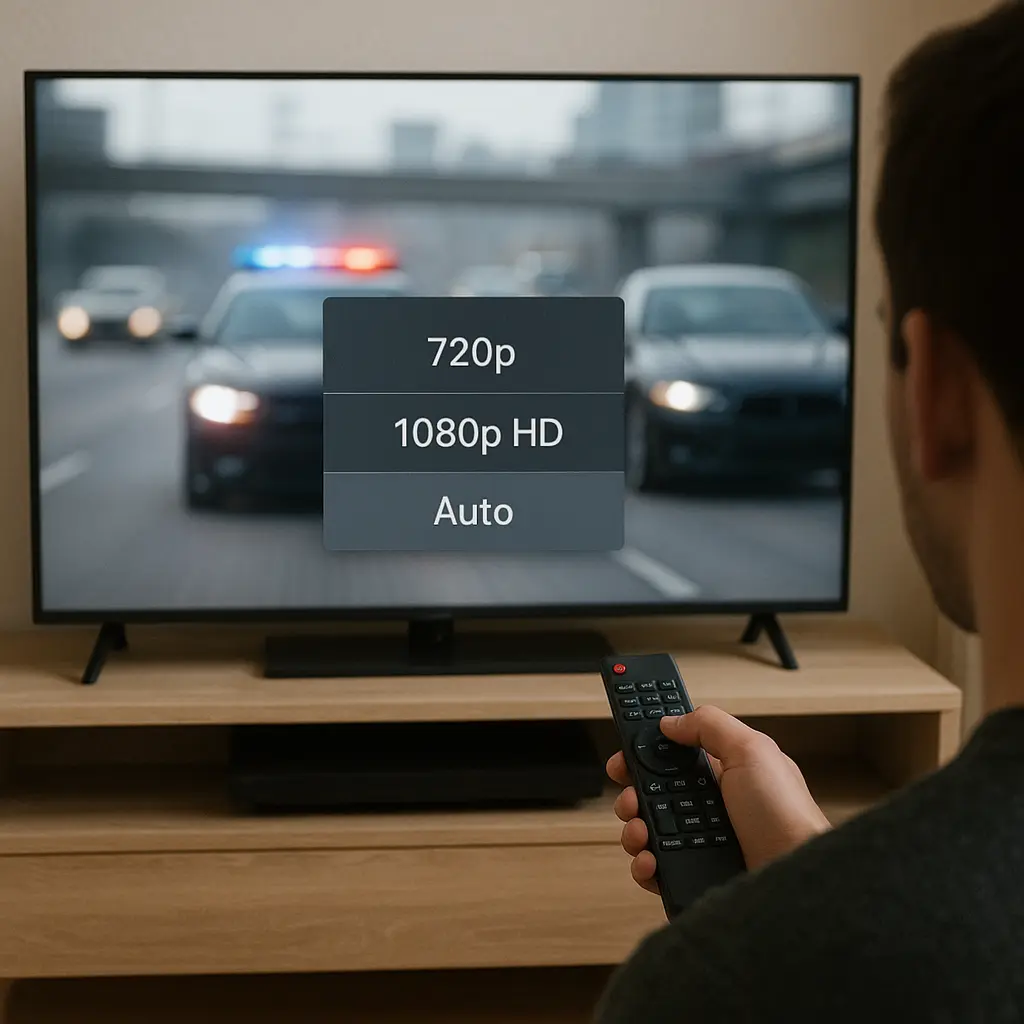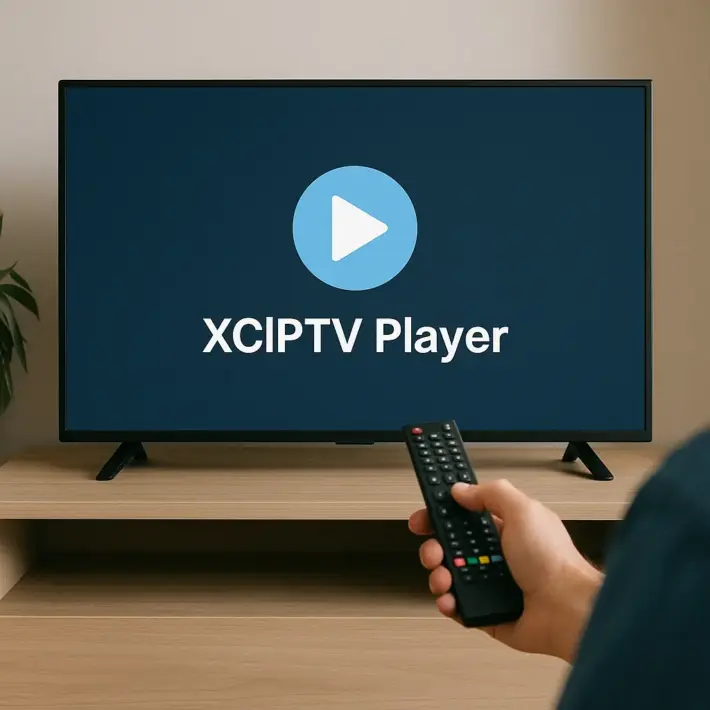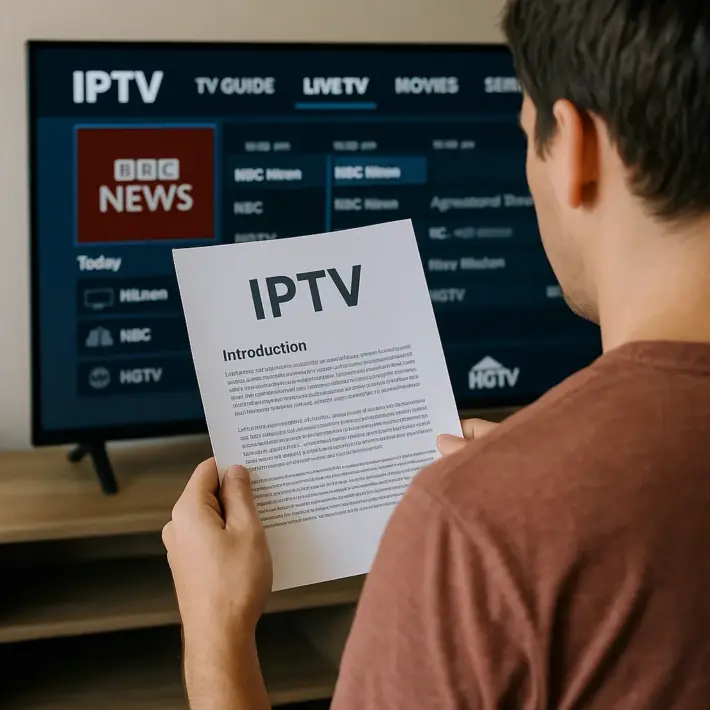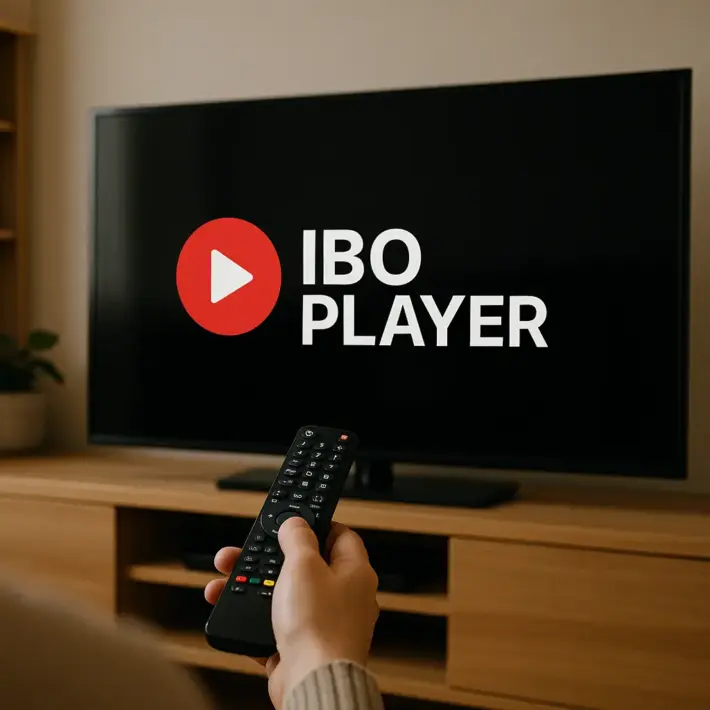Is IPTV Good Quality for Streaming ?

You’ll get IPTV good quality when your internet speed exceeds 25 Mbps for 4K streaming, as modern services use H.265/HEVC encoding that’s 50% more efficient than cable’s MPEG-2/4 compression.
IPTV subscription supports 4K/8K resolutions while cable maxes at 1080p, though you’ll experience 200-500ms latency versus cable’s sub-100ms response. Premium providers with CDN-backed servers achieve 99.9% uptime and deliver 15-25 Mbps bitrates.
Factors That Determine IPTV Picture and Sound Quality
When you’re evaluating IPTV good quality, three critical factors directly impact what you’ll see and hear: your internet bandwidth, the provider’s encoding standards, and the streaming protocol they’ve implemented. You’ll need minimum speeds of 25 Mbps for 4K content, while HD requires 5-8 Mbps. Video compression codecs like H.265/HEVC deliver 50% better efficiency than H.264, maintaining quality at lower bitrates.
Your provider’s streaming protocols determine buffering and latency performance. HTTP-based protocols (HLS, DASH) offer 2-10 second delays but superior stability, while RTMP provides sub-second latency for live events.
Comparing IPTV Quality to Cable and Satellite Services
How does IPTV works and stack up against traditional cable and satellite when you’re comparing raw picture quality? You’ll find IPTV’s performance depends heavily on your internet connection, while cable and satellite maintain consistent signal strength regardless of network traffic.
Here’s what distinguishes each technology’s quality metrics:
- Resolution capabilities: IPTV supports 4K/8K streaming; cable maxes at 1080p in most markets.
- Compression rates: IPTV uses H.265/HEVC codec; cable relies on older MPEG-2/4.
- Latency measurements: Cable delivers <100ms delay; IPTV ranges 200-500ms.
- Weather impact: Satellite degrades during storms; IPTV’s unaffected by weather.
- Bandwidth allocation: IPTV offers dynamic bitrate adjustment; cable provides fixed bandwidth.
IPTV’s streaming advantages include on-demand scalability and adaptive quality settings. However, cable’s service reliability doesn’t fluctuate with internet congestion, delivering predictable 99.9% uptime versus IPTV’s variable 95-99% availability.
Internet Speed Requirements for Optimal IPTV Performance
While IPTV’s picture quality can match or exceed traditional broadcasting, you’ll need sufficient internet bandwidth to unlock its full potential. Standard definition requires 3-5 Mbps, HD content demands 8-10 Mbps, and 4K streaming needs 25-35 Mbps minimum. You’re looking at streaming bandwidth requirements that scale with simultaneous users—multiply these figures by active streams in your household.
Latency impact becomes critical below 15 Mbps. You’ll experience buffering, pixelation, and audio sync issues when your connection can’t maintain consistent throughput. Network congestion during peak hours typically reduces available bandwidth by 20-30%.
Common IPTV Quality Issues and How to Fix Them
Even with adequate bandwidth, you’ll encounter specific quality problems that require targeted solutions. Understanding these issues helps you maintain consistent streaming performance and minimize disruptions.
Common problems you’ll face include:
- Buffering issues – Occurs when data can’t load quickly enough, causing playback interruptions
- Pixelation – Results from packet loss during transmission, creating blocky visual artifacts
- Audio sync problems – Develops when audio and video streams process at different rates
- Frozen frames – Happens when decoder fails to process incoming data streams
- Low picture quality – Stems from incorrect resolution settings or insufficient bitrate allocation
You’ll fix most problems by adjusting your device’s resolution settings from 4K to 1080p, clearing cache memory, or switching to wired connections. Server-side buffering issues require provider intervention, while client-side problems respond to router restarts and DNS changes.
Choosing High-Quality IPTV Providers and Equipment
| Factor | Details |
| Network Optimization | Optimize settings first—quality depends on provider and hardware. |
| Provider Reliability | Server uptime: 95% (budget) → 99.9% (premium). |
| Bitrate (Streaming Speed) | Premium: 15–25 Mbps for 4K; Budget: 5–8 Mbps. |
| Hardware Requirements | Set-top box with ≥2GB RAM and quad-core processor recommended. |
| Device Compatibility | Best with Android 9.0+ (superior codec support vs. older models). |
| Performance Metrics | – Buffering frequency (low = better)- Channel switching: < 2s– EPG responsiveness (fast loading). |
| User Reviews & Testing | Check verified reviews on uptime averages, buffering issues, and peak-hour performance before choosing a provider. |
Frequently Asked Questions
Is IPTV Legal to Use in My Country?
You’ll need to verify IPTV legality in your specific jurisdiction, as IPTV regulations vary significantly between countries. Licensed services are typically legal, while unauthorized streams aren’t. Check your local broadcasting laws for compliance requirements and restrictions.
How Much Does IPTV Typically Cost per Month?
You’ll find IPTV prices ranging from $10-50 monthly, though pricing comparison reveals significant variance. Premium services cost $30-50, mid-tier options $15-25, while basic packages start at $10-15, depending on channel count and streaming quality specifications.
Can I Record Shows and Movies With IPTV?
You can record with some IPTV services, but recording limitations vary significantly between providers. Storage options include cloud-based (20-100GB typical) or local DVR solutions. Premium services offer better functionality, while basic packages often restrict recording capabilities entirely.
Does IPTV Work on All Smart TVS?
You’ll find IPTV works on most smart TVs through native apps or sideloading options. Smart TV compatibility varies by manufacturer—Samsung, LG, Android TV platforms show 85% IPTV app availability, while others require external streaming devices.
Will IPTV Drain My Monthly Internet Data Cap?
Yes, you’ll consume significant data with IPTV. Streaming at 1080p uses 3-5GB hourly, while 4K demands 7-10GB. Your internet speed determines quality options, but continuous viewing quickly depletes caps. Monitor data consumption carefully against monthly limits.


